Find Help
More Items From Ergsy search
-
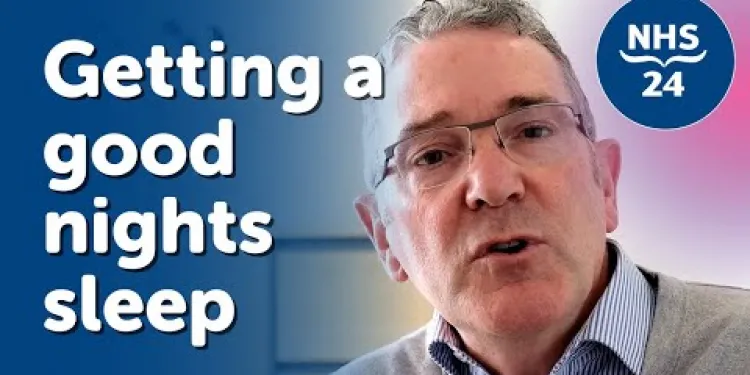
Top Tips to Help You Get a Good Nights Sleep
Relevance: 100%
-
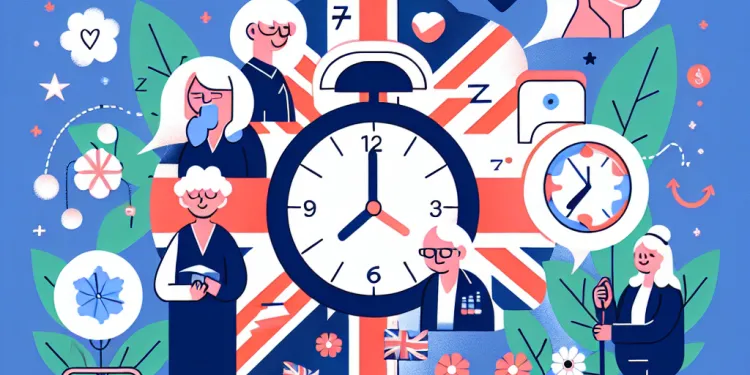
The Importance of Sleep for All Ages
Relevance: 54%
-

Are there any screen time guidelines recommended for improving sleep?
Relevance: 54%
-
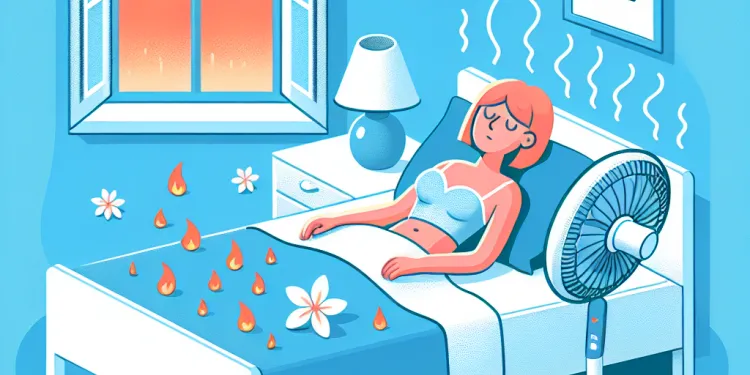
How can I sleep comfortably during a heatwave?
Relevance: 52%
-
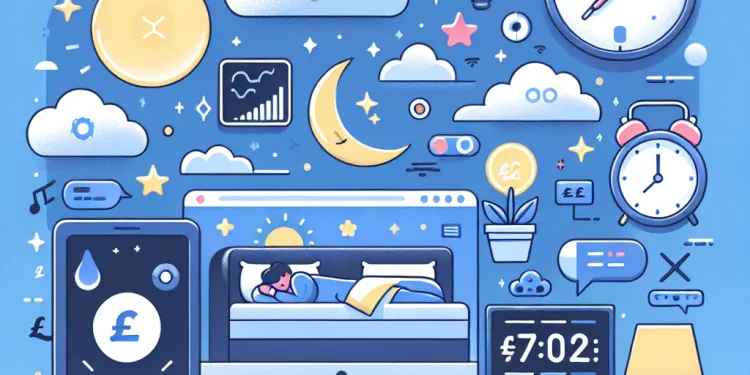
Does screen time affect both sleep onset and sleep maintenance?
Relevance: 50%
-

Does a Ring Doorbell Camera work at night?
Relevance: 50%
-

Can reducing screen time improve sleep quality?
Relevance: 47%
-

How does sleep quality relate to menopause symptoms?
Relevance: 47%
-

What are some tips for reducing screen time to improve sleep?
Relevance: 47%
-

Instructions for setting up your home sleep study
Relevance: 47%
-

Is the video quality of a Ring Doorbell Camera good?
Relevance: 45%
-
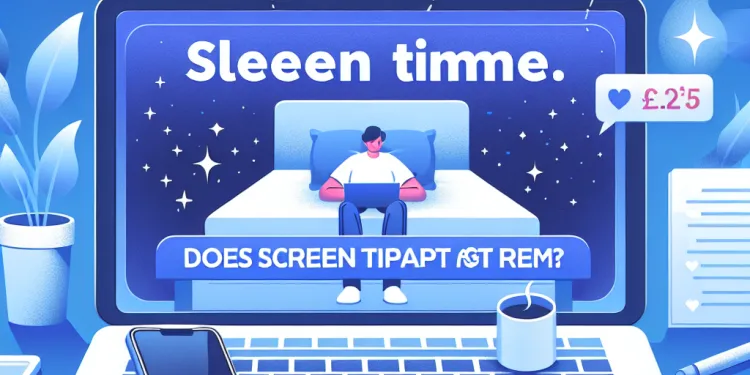
Does screen time impact REM sleep?
Relevance: 43%
-

What are the main types of sleep apnea?
Relevance: 43%
-
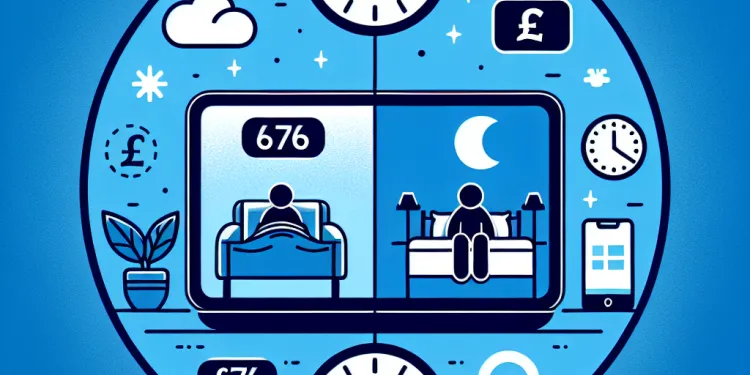
Is there a difference in screen time impact on sleep between weekdays and weekends?
Relevance: 43%
-

Can children have sleep apnea?
Relevance: 42%
-
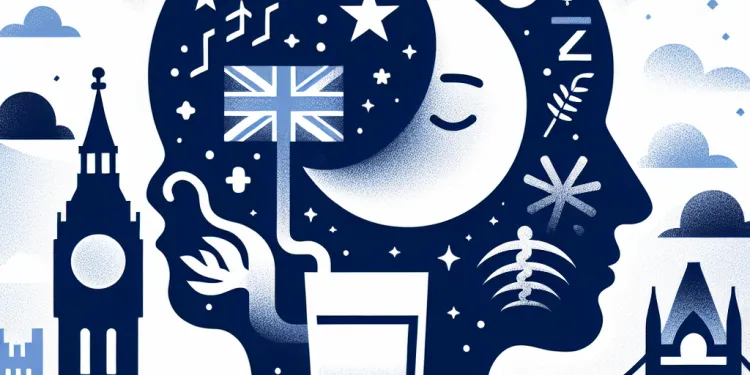
Can alcohol worsen sleep apnea?
Relevance: 41%
-

Do mitigation strategies like blue light glasses help improve sleep quality?
Relevance: 41%
-
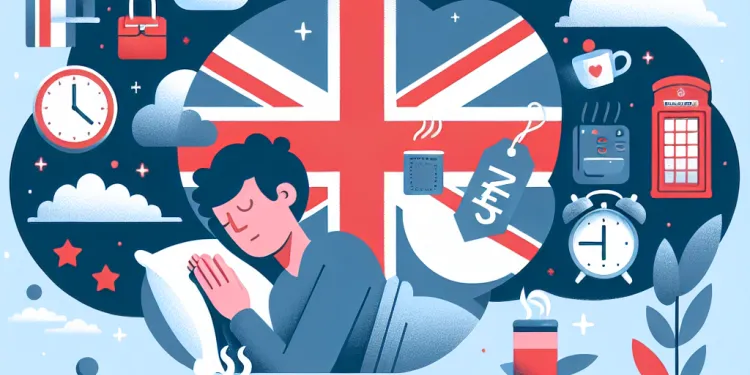
What are common symptoms of sleep apnea?
Relevance: 41%
-

How is sleep apnea diagnosed?
Relevance: 41%
-
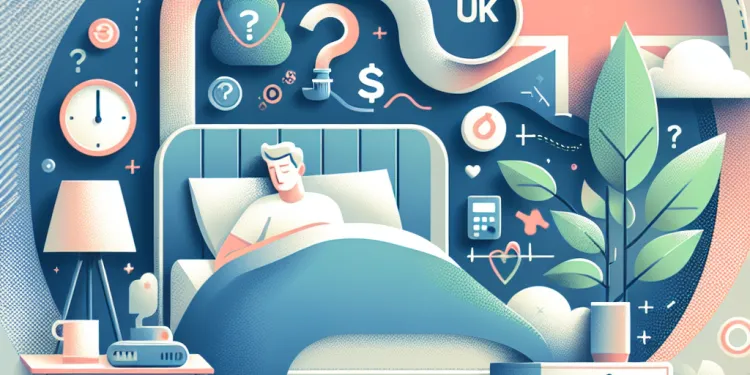
How common is sleep apnea?
Relevance: 41%
-
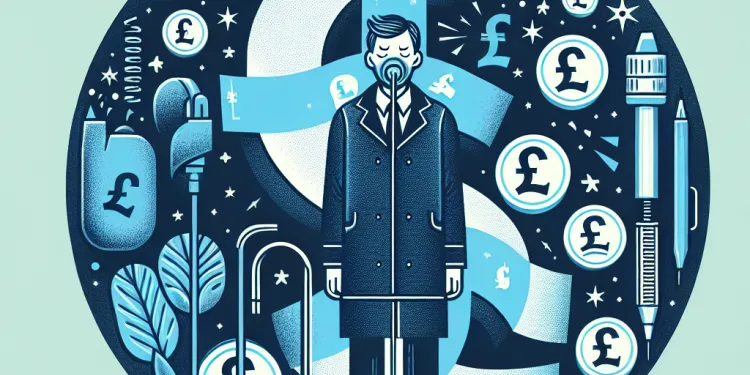
What is sleep apnoea?
Relevance: 40%
-
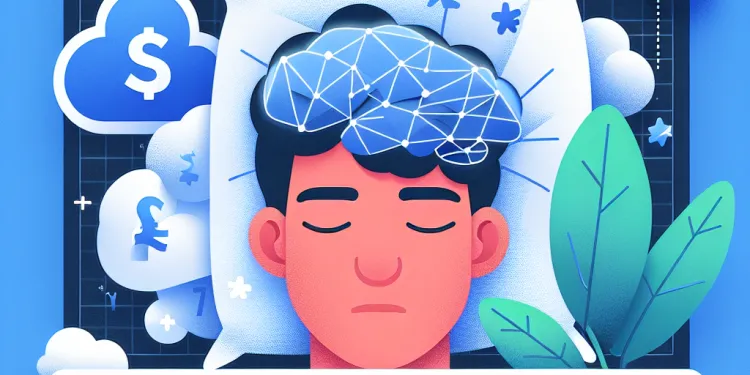
Is it safe to sleep after a concussion?
Relevance: 40%
-

How does the new Sleep Apnea Chip work?
Relevance: 39%
-

What lifestyle changes can help manage sleep apnea?
Relevance: 39%
-

What is complex sleep apnea syndrome?
Relevance: 39%
-

Is blue light from screens a factor in affecting sleep quality?
Relevance: 39%
-
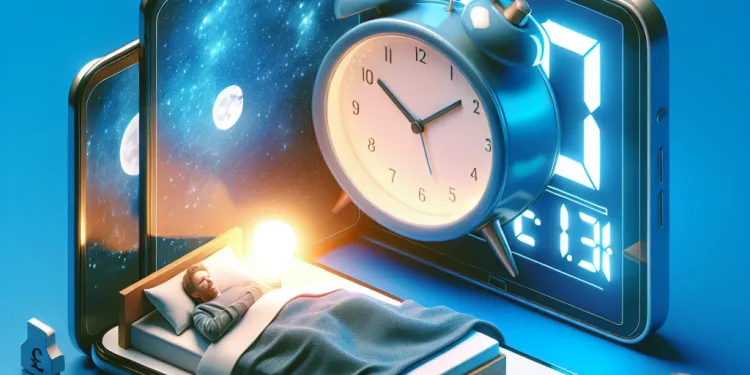
Study Shows Link Between Screen Time and Sleep Quality
Relevance: 38%
-

How does screen time affect sleep quality?
Relevance: 38%
-

What is sleep apnea?
Relevance: 37%
-

What is the main finding of the study linking screen time to sleep quality?
Relevance: 37%
-

What demographic showed the most significant change in sleep quality due to screen time?
Relevance: 37%
-

What is the safest sleep environment for an infant?
Relevance: 37%
-
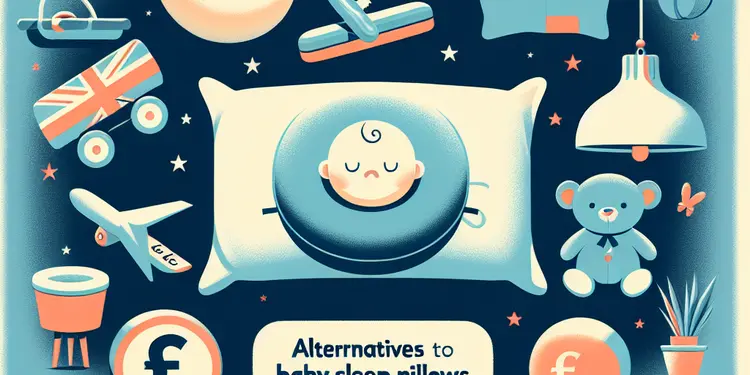
What alternatives to baby sleep pillows are considered safe?
Relevance: 36%
-

Why is sleep apnea dangerous?
Relevance: 36%
-
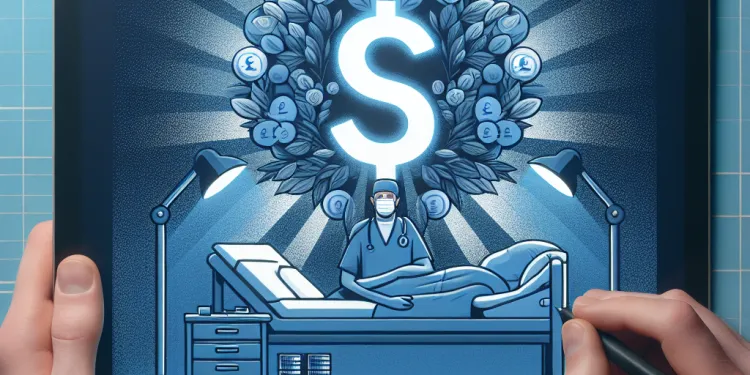
Can sleep apnea be cured?
Relevance: 36%
-
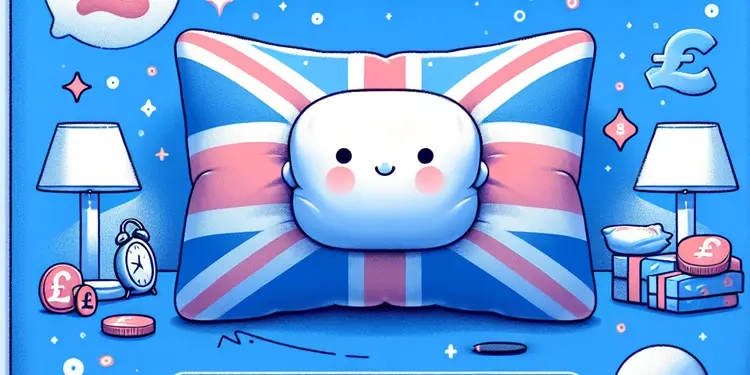
Are baby sleep pillows safe?
Relevance: 35%
-
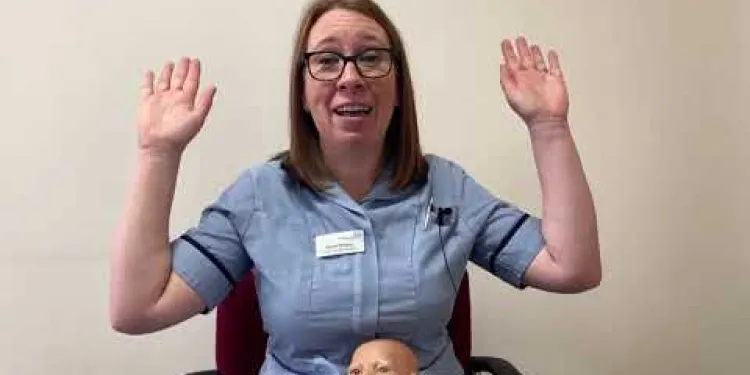
Safe sleeping and reducing the risk of Sudden Infant Death Syndrome (SIDS)
Relevance: 35%
-

What is the role of parental monitoring in children's screen time and sleep?
Relevance: 35%
-
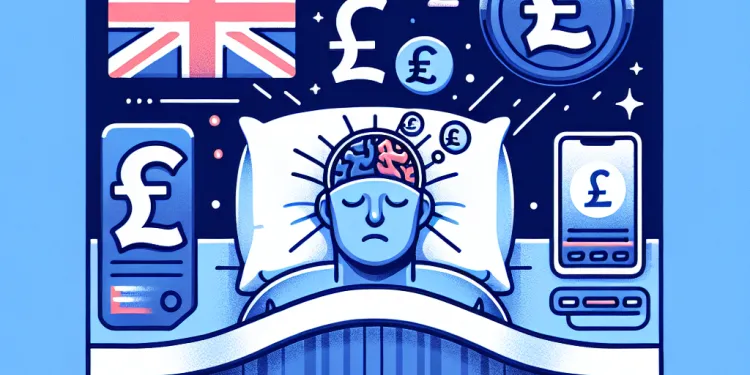
Is it safe to sleep after a concussion?
Relevance: 34%
-
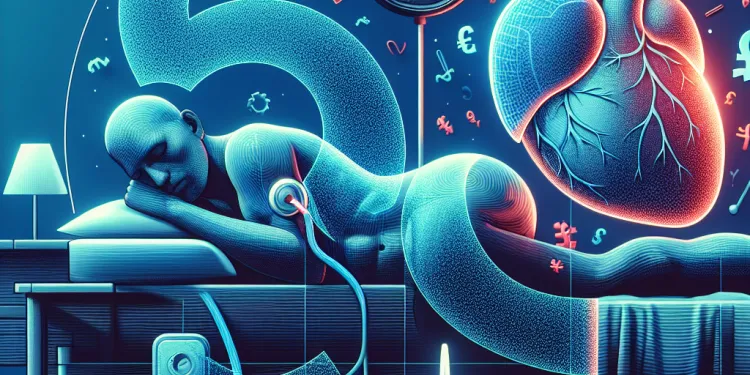
What is complex sleep apnea syndrome?
Relevance: 34%
Top Tips to Help You Get a Good Night's Sleep
Maintain a Sleep Schedule
One of the most effective ways to improve your sleep is to maintain a consistent sleep schedule. Try to go to bed and wake up at the same time every day, even on weekends. This helps regulate your body's internal clock and makes falling asleep and waking up more manageable.
Create a Relaxing Bedtime Routine
A calming pre-sleep routine can signal your body that it's time to unwind and prepare for rest. Consider activities such as reading a book, taking a warm bath, or practicing gentle yoga. Avoid stimulating activities like watching TV or scrolling through social media, as these can make it harder to fall asleep.
Optimise Your Sleep Environment
Your sleep environment plays a crucial role in the quality of your sleep. Ensure your bedroom is quiet, dark, and cool. Investing in a comfortable mattress and pillows can also make a significant difference. Use blackout curtains or an eye mask to block light and earplugs to muffle disruptive sounds.
Monitor Your Diet and Beverages
What you consume during the day, particularly in the hours leading up to bedtime, can impact your sleep. Avoid large meals, caffeine, and alcohol close to bedtime. While alcohol might make you feel sleepy initially, it can disrupt your sleep cycle later in the night. Opt for a light snack if you're hungry before bed.
Stay Active During the Day
Regular physical activity can help you fall asleep faster and enjoy deeper sleep. However, try to avoid vigorous exercise close to bedtime, as it can have an energizing effect. Aim to finish exercising at least three hours before you plan to go to bed.
Manage Stress and Anxiety
Stress and anxiety are common culprits that can interfere with a good night's sleep. Practice relaxation techniques such as meditation, deep breathing exercises, or progressive muscle relaxation to calm your mind before bed. Consider setting aside time earlier in the evening to address worries or make a to-do list for the next day.
Seek Professional Help if Needed
If you've tried several strategies and still struggle with sleep, it might be time to consult a healthcare professional. Sleep disorders such as insomnia or sleep apnea can impact your well-being and may require medical intervention. Your GP can help diagnose any underlying issues and provide appropriate treatment options.
Top Tips to Help You Get a Good Night's Sleep
Quality sleep is essential for overall well-being, but many people struggle to get the rest they need. Here are some top tips to help you achieve a restful night's sleep.
Establish a Consistent Sleep Schedule
Setting a regular bedtime and wake-up time, even on weekends, can help regulate your body's internal clock. Aim to go to bed and wake up at the same time every day to improve your sleep quality.
Create a Relaxing Bedtime Routine
Engaging in relaxing activities before bed can signal your body that it's time to wind down. Consider taking a warm bath, reading a book, or listening to calming music. Avoid screens and bright lights an hour before bedtime as they can interfere with your sleep.
Make Your Sleeping Environment Comfortable
Your bedroom should be a sanctuary for sleep. Ensure your mattress and pillows are comfortable. Try to maintain a cool, dark, and quiet environment. Consider blackout curtains and white noise machines to block out any disturbances.
Watch Your Diet and Exercise
What you eat and drink can affect your sleep. Avoid large meals, caffeine, and alcohol close to bedtime. Regular physical activity can also promote better sleep, but try to finish exercising at least a few hours before bed.
Avoid Long Naps
While naps can be tempting, long or irregular napping during the day can disrupt your sleep cycle. If you need a nap, try to limit it to 20-30 minutes and avoid doing so late in the day.
Manage Stress and Concerns
Stress and anxiety can significantly impact sleep quality. Techniques such as mindfulness, meditation, and deep breathing exercises can help calm your mind. Keeping a journal to jot down your thoughts before bed can also free your mind from racing thoughts.
By implementing these tips, you can increase your chances of getting the restful and rejuvenating sleep you need each night.
Top Tips to Help You Get a Good Night's Sleep
Keep a Regular Sleep Time
Going to bed and waking up at the same time every day can help you sleep better. Try not to change your sleep time, even on weekends. This helps your body know when to sleep and wake up.
Have a Relaxing Bedtime Routine
Doing calm activities before bed can help you relax. Try reading a book, taking a warm bath, or doing gentle yoga. Avoid watching TV or using your phone before bed because these make it hard to sleep.
Make Your Bedroom Sleep-Friendly
Your bedroom can help you sleep well. Make sure it is quiet, dark, and cool. A comfy mattress and pillows can help too. Use blackout curtains or an eye mask to keep out light and earplugs to block noise.
Watch What You Eat and Drink
What you eat and drink can affect your sleep. Don't have big meals, coffee, or alcohol before bed. Alcohol may make you sleepy at first but wake you up later. If you're hungry, have a small snack.
Be Active During the Day
Exercise can help you sleep better. Try to finish exercising at least three hours before bed so it does not keep you awake.
Manage Stress and Worry
Feeling stressed or worried can stop you from sleeping well. Try meditation, deep breathing, or muscle relaxation to calm yourself before bed. Write down your worries or plans for tomorrow earlier in the evening.
Get Help if You Still Can't Sleep
If you still can't sleep after trying these tips, talk to a doctor. Problems like insomnia or sleep apnea might be the reason. A doctor can help you figure out what to do.
Top Tips to Help You Get a Good Night's Sleep
Good sleep is important for feeling well. Many people have trouble sleeping. Here are some simple tips to help you sleep better at night.
Set a Regular Sleep Schedule
Go to bed and wake up at the same time every day, even on weekends. This helps your body know when to sleep and when to wake up.
Have a Relaxing Bedtime Routine
Do calm things before bed to help your body get ready for sleep. Try taking a warm bath, reading a story, or listening to soft music. Stay away from screens and bright lights an hour before bed because they can keep you awake.
Make Your Bedroom Comfy
Your bedroom should be a nice place to sleep. Make sure your mattress and pillows feel good. Keep your room cool, dark, and quiet. You can use blackout curtains to block light and a white noise machine to cover up sounds.
Watch What You Eat and Drink
Food and drinks can change how you sleep. Don't eat big meals, or have caffeine or alcohol close to bedtime. Moving your body during the day can help you sleep better, but don't exercise right before bed.
Limit Long Naps
Napping can be nice, but long naps or naps too late in the day can make it hard to sleep at night. If you need a nap, keep it short, like 20-30 minutes.
Handle Stress and Worries
Stress can make it hard to sleep. Try deep breathing, meditation, or mindfulness to relax. Writing in a journal before bed can help clear your mind.
By trying these tips, you might sleep better and feel more rested every night.
Frequently Asked Questions
What is a good bedtime routine to help with sleep?
Establishing a relaxing pre-sleep routine can help signal your body that it's time to wind down. Consider activities such as reading a book, taking a warm bath, or practicing mindfulness and deep-breathing exercises.
How does screen time affect sleep?
The blue light emitted by screens can interfere with the production of melatonin, a hormone that regulates sleep. It's advisable to turn off electronic devices at least an hour before bed to improve sleep quality.
Is it important to go to bed and wake up at the same time every day?
Yes, keeping a consistent sleep schedule, even on weekends, helps regulate your body's internal clock, making it easier to fall asleep and wake up naturally.
What type of environment is best for sleeping?
A dark, cool, and quiet environment is ideal for sleep. Consider using blackout curtains, earplugs, or a white noise machine to create a sleep-friendly atmosphere.
How does caffeine affect sleep?
Caffeine is a stimulant that can remain in your body for several hours. It's best to avoid caffeine in the afternoon and evening to reduce its impact on sleep.
What role does diet play in sleep?
Eating a balanced diet and avoiding large meals, caffeine, and alcohol close to bedtime can help promote better sleep. Consuming a light snack, such as a banana or a small bowl of cereal, may help some people sleep better.
Are naps recommended for better sleep at night?
While short naps (20-30 minutes) can be beneficial, long or irregular napping during the day can interfere with nighttime sleep. If you have trouble sleeping at night, avoid napping altogether.
How much sleep do most adults need?
Most adults need 7 to 9 hours of sleep per night to function optimally. However, individual needs may vary.
What can I do if I can’t fall asleep after going to bed?
If you can't fall asleep after 20 minutes, get out of bed and do a quiet, relaxing activity in low light. Return to bed when you feel sleepy.
How does exercise affect sleep?
Regular physical activity can help you fall asleep faster and enjoy deeper sleep. However, exercising too close to bedtime can be stimulating, so try to complete workouts at least a few hours before bed.
Should I use my bedroom only for sleep?
Yes, using your bedroom only for sleep and intimacy helps strengthen the mental association between the bedroom and sleep, making it easier to relax and fall asleep.
Can listening to music help with sleep?
Listening to calming music or nature sounds can be a good way to relax and improve sleep quality. Choose something soothing and keep the volume low.
What can I do if I wake up in the middle of the night and can't fall back asleep?
If you wake up and can't get back to sleep within 20 minutes, get out of bed and do a relaxing activity in low light. Avoid bright screens and try to return to bed when you feel drowsy.
How does alcohol affect sleep?
While alcohol may make you feel sleepy initially, it disrupts the sleep cycle later in the night, reducing overall sleep quality and preventing deep, restorative sleep.
What if I still can't sleep well despite following these tips?
If sleep problems persist, it may be helpful to consult a healthcare professional or a sleep specialist to identify underlying issues and explore potential treatments.
How can I have a good bedtime routine to sleep better?
Here are some simple steps to help you sleep well:
- Go to bed at the same time every night.
- Turn off computers, tablets, and phones before bed.
- Read a nice book or listen to calm music.
- Take a warm bath or shower.
- Make sure your room is dark and quiet.
These steps can help you relax and sleep better. You can also ask an adult for help if you find it hard to fall asleep.
Having a bedtime routine can help your body know it's time to calm down and go to sleep. You can try things like reading a story, taking a warm bath, or doing breathing exercises to help you relax.
How does looking at screens affect sleep?
Looking at screens, like phones or tablets, before bed can make it hard to sleep. This is because screens are bright and can trick your brain into thinking it's daytime. When your brain thinks it is daytime, it doesn't feel sleepy. Try not to look at screens at least one hour before bed to help your brain feel sleepy. Listening to calming music or reading a book can help you relax instead.
Screens like TVs, phones, and tablets give off blue light. This blue light can stop our bodies from making something called melatonin. Melatonin helps us sleep. To sleep better, try turning off screens one hour before bedtime.
Should you go to bed and wake up at the same time every day?
Yes, it is good. Going to bed and getting up at the same time helps your body feel better. Here are some tips to help:
- Try to sleep and wake up at the same time every day, even on weekends.
- Use a bedtime routine, like reading a book or listening to calm music.
- If you need help, ask someone to remind you of bedtime.
These steps can help you sleep better and have more energy during the day.
Yes, going to bed and waking up at the same time every day, even on weekends, helps your body get used to a routine. This makes it easier for you to fall asleep and wake up on your own.
What place is best for sleeping?
Here is how to make your room good for sleep:
- Keep the room cool, dark, and quiet.
- Use comfy pillows and blankets.
- Try using earplugs or a sleep mask if it is noisy or bright.
- A bedtime routine can help you relax.
A good place to sleep is dark, cool, and quiet. You can use some helpful things:
- Blackout curtains to keep the light out.
- Earplugs to stop noise.
- A white noise machine to make soft, calming sounds.
These things help you sleep better!
How does caffeine affect sleep?
Caffeine is found in drinks like coffee, tea, and cola. It can make you feel more awake. This can make it hard to go to sleep. It's better not to have caffeine before bedtime.
Here are some helpful tips:
- Try drinking water or milk instead of drinks with caffeine before bed.
- Read a bedtime story or listen to calming music to help you relax.
- Have a regular bedtime routine, like brushing your teeth and putting on pajamas.
Caffeine is something that makes you feel more awake. It can stay in your body for a long time. Try not to have caffeine in the afternoon and night. This helps you sleep better.
How does food help you sleep?
To sleep better, eat healthy foods and don't have big meals before bed. Avoid drinks like coffee and alcohol before sleeping. You can have a small snack, like a banana or a little cereal, to help you sleep well.
Should you take naps to sleep better at night?
Do you want to sleep better at night? You might think about taking naps during the day. But is this helpful?
Naps can be good if you are very tired. They should be short, like 20-30 minutes. If you nap too long, it might be hard to sleep at night.
Here are some tips to help:
- Keep naps short.
- Take naps early in the day, not too close to bedtime.
- Use a quiet and comfy place to nap.
If you have trouble sleeping at night, talk to a doctor. They can help you find ways to sleep better.
Short naps (20-30 minutes) in the day are good for you. But if you nap for too long or at odd times, it can make it hard to sleep at night. If you can't sleep well at night, try not to nap during the day.
How much sleep do most adults need?
Most grown-ups need about 7 to 9 hours of sleep every night.
Here are some tips to help you sleep better:
- Go to bed at the same time every night.
- Avoid screens, like phones and tablets, before bedtime.
- Keep your bedroom quiet and dark.
- If you have trouble sleeping, ask a parent or carer for help.
Most grown-ups need to sleep for 7 to 9 hours each night to feel good and work well. But some people might need more or less sleep.
What can I do if I can't sleep in bed?
Here are some tips to help you:
- Try closing your eyes and taking deep breaths to relax.
- Think about happy things or listen to quiet music.
- Read a book you like or listen to a story.
- If you are not sleepy, get up and do something quiet until you feel tired.
- Make sure your room is dark and not too noisy.
- Ask an adult for help if you are still having trouble.
If you can't fall asleep after 20 minutes, get out of bed. Do something quiet and relaxing in a dim light. Go back to bed when you feel sleepy.
How does exercise affect sleep?
Exercise is when you move your body to get fit and strong. Exercise can help you sleep better. When you are tired from playing or moving a lot, your body might want to rest and sleep. Exercise can also make you happy, and being happy can help you relax and sleep well.
If you have trouble sleeping, try doing some exercise during the day. This could be walking, running, playing, or even dancing. Make sure not to exercise too close to bedtime, as this might make it hard to sleep.
Tools like a sleep diary can help. Write down what you did and how you slept. Apps with relaxing sounds or stories can also make it easier to fall asleep.
Moving your body during the day can help you fall asleep faster and sleep better. But if you exercise right before bedtime, it might make it harder to sleep. Try to finish your exercise a few hours before you go to bed.
If reading is hard, try using tools that read aloud to you or practice with someone. It can also help to take breaks and read a little bit at a time.
Is the bedroom just for sleeping?
The bedroom is a special place where you sleep at night. It helps your body and mind rest. Using the bedroom just for sleep can help your brain know it is time to rest.
Here are some tips to help:
- Read books or magazines if you like, but try to keep it relaxing.
- Avoid watching TV or using your phone in bed. They make it harder to sleep.
- Keep toys or games in another room. This helps your brain remember, "bedroom is for sleep."
Remember, a cozy and quiet bedroom can help you sleep better!
Yes, using your bedroom only for sleep and cuddling can help you feel sleepy when you're there. This makes it easier to relax and fall asleep.
Can music help you sleep better?
Listening to gentle music or sounds from nature can help you relax and sleep better. Pick something soft to listen to and keep the sound quiet.
What can I do if I wake up at night and can't go back to sleep?
Here are some simple steps you can try:
- Take slow, deep breaths to help you relax.
- Think of a happy place or a calm story.
- Try listening to soft music or calming sounds.
- Avoid looking at bright screens like phones or tablets.
- Get up and do a quiet activity like reading a book until you feel sleepy again.
If you often wake up and can't sleep, talk to a grown-up or a doctor. They can give you more help!
If you wake up and can't fall back asleep in 20 minutes, get out of bed. Do something calm and quiet. Keep the lights dim. Stay away from bright screens like phones or computers. Go back to bed when you start to feel sleepy again.
How does alcohol affect sleep?
Drinking alcohol can change how you sleep. Here is how:
- Makes you sleepy: At first, alcohol might make you feel sleepy.
- Wakes you up: Later in the night, alcohol can make you wake up.
- Bad sleep: You may not sleep as well after drinking.
Tools to help with sleep:
- Use a sleep app to track your rest.
- Listen to calming music before bed.
At first, alcohol might make you feel sleepy. But later in the night, it can mess up your sleep. This means you won't sleep as well, and you won't get the deep sleep you need to feel rested.
If you find it hard to read, you can try using text-to-speech tools to listen to the text instead. It might also help to read out loud slowly or underline important words.
What if I still can't sleep well even after trying these tips?
If you still have trouble sleeping, here are some things you can do:
- Talk to a doctor or nurse. They can help you find out what's wrong.
- Try to keep your bedtime and wake-up time the same every day.
- Make your bedroom quiet and dark.
- Take deep breaths to help you relax.
It's important to ask for help. Don't worry about doing it alone.
If you still have trouble sleeping, it is a good idea to talk to a doctor or a sleep expert. They can help find out why you can't sleep and tell you about things that might help.
Useful Links
This website offers general information and is not a substitute for professional advice.
Always seek guidance from qualified professionals.
If you have any medical concerns or need urgent help, contact a healthcare professional or emergency services immediately.
- Ergsy carfully checks the information in the videos we provide here.
- Videos shown by Youtube after a video has completed, have NOT been reviewed by ERGSY.
- To view, click the arrow in centre of video.
- Most of the videos you find here will have subtitles and/or closed captions available.
- You may need to turn these on, and choose your preferred language.
- Go to the video you'd like to watch.
- If closed captions (CC) are available, settings will be visible on the bottom right of the video player.
- To turn on Captions, click settings .
- To turn off Captions, click settings again.
More Items From Ergsy search
-

Top Tips to Help You Get a Good Nights Sleep
Relevance: 100%
-

The Importance of Sleep for All Ages
Relevance: 54%
-

Are there any screen time guidelines recommended for improving sleep?
Relevance: 54%
-

How can I sleep comfortably during a heatwave?
Relevance: 52%
-

Does screen time affect both sleep onset and sleep maintenance?
Relevance: 50%
-

Does a Ring Doorbell Camera work at night?
Relevance: 50%
-

Can reducing screen time improve sleep quality?
Relevance: 47%
-

How does sleep quality relate to menopause symptoms?
Relevance: 47%
-

What are some tips for reducing screen time to improve sleep?
Relevance: 47%
-

Instructions for setting up your home sleep study
Relevance: 47%
-

Is the video quality of a Ring Doorbell Camera good?
Relevance: 45%
-

Does screen time impact REM sleep?
Relevance: 43%
-

What are the main types of sleep apnea?
Relevance: 43%
-

Is there a difference in screen time impact on sleep between weekdays and weekends?
Relevance: 43%
-

Can children have sleep apnea?
Relevance: 42%
-

Can alcohol worsen sleep apnea?
Relevance: 41%
-

Do mitigation strategies like blue light glasses help improve sleep quality?
Relevance: 41%
-

What are common symptoms of sleep apnea?
Relevance: 41%
-

How is sleep apnea diagnosed?
Relevance: 41%
-

How common is sleep apnea?
Relevance: 41%
-

What is sleep apnoea?
Relevance: 40%
-

Is it safe to sleep after a concussion?
Relevance: 40%
-

How does the new Sleep Apnea Chip work?
Relevance: 39%
-

What lifestyle changes can help manage sleep apnea?
Relevance: 39%
-

What is complex sleep apnea syndrome?
Relevance: 39%
-

Is blue light from screens a factor in affecting sleep quality?
Relevance: 39%
-

Study Shows Link Between Screen Time and Sleep Quality
Relevance: 38%
-

How does screen time affect sleep quality?
Relevance: 38%
-

What is sleep apnea?
Relevance: 37%
-

What is the main finding of the study linking screen time to sleep quality?
Relevance: 37%
-

What demographic showed the most significant change in sleep quality due to screen time?
Relevance: 37%
-

What is the safest sleep environment for an infant?
Relevance: 37%
-

What alternatives to baby sleep pillows are considered safe?
Relevance: 36%
-

Why is sleep apnea dangerous?
Relevance: 36%
-

Can sleep apnea be cured?
Relevance: 36%
-

Are baby sleep pillows safe?
Relevance: 35%
-

Safe sleeping and reducing the risk of Sudden Infant Death Syndrome (SIDS)
Relevance: 35%
-

What is the role of parental monitoring in children's screen time and sleep?
Relevance: 35%
-

Is it safe to sleep after a concussion?
Relevance: 34%
-

What is complex sleep apnea syndrome?
Relevance: 34%


